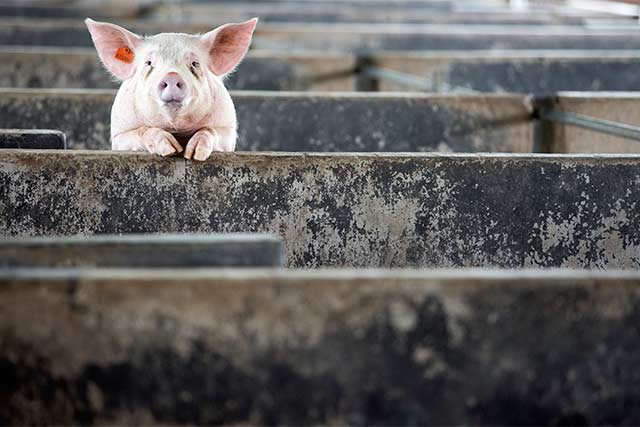Canada’s pork farmers say Trump’s tariffs put ‘a lot of jobs’ at stake

Pork producer Ian Smith says U.S. President Donald Trump’s tariffs are nothing but bad news for hog farmers in Canada, which rely heavily on exports to the U.S
Manitoba is the largest pig producing province in the country. The province exports between three to 3.5 million live pigs into the U.S. every year. That’s worth about $200 million in trade.
“This is going to be a disaster to all farmers,” said Smith, who owns a farm in Argyle, Manitoba. “More so to the hog industry, because we are big exporter to the U.S. in weanlings and feeder pigs.”
“Food prices are going to go up probably more and it’s going to hurt the States big time in food, too,” he said. “They depend on so much of our stuff.”
Rick Bergmann has been selling pigs to the U.S. for 35 years. As a hog farmer in southern Manitoba, he exports between 35,000-40,000 of his pigs to the U.S. annually. Tariffs, he says, would gravely impact his business.
“If there’s a stoppage that is so impactful that trade stops, or dramatically minimized, what do we do?” he says. “There’s a lot of jobs that are at stake by this.”
Bergmann says he’s had tremendous success trading with his U.S. counterparts. He doesn’t see the reason why those partnerships should be disrupted.
“It will impact, not just the folks on the farm, but many other people,” he says. “Communities where these employees are living in. The stores, the churches, the community centres. There is an impact in a vast way when you don’t have a proper stream of product flowing.”
Manitoba produces around eight million pigs every year. About 90 per cent of that is either exported as pork around the world or as live animals into the United States.
“When you combine both pork and live animals, the U.S. is our number one market,” says Cam Dahl, the General Manager of Manitoba Pork.
The hog industry creates around 23,000 jobs across the province and has a $2.3 billion impact on Manitoba’s GDP every year. And it’s not just the pork industry that will be impacted, 60 per cent of all Canadian agriculture exports go to the U.S., according to Agriculture and Agri-Food Canada.
“If that integrated trade between Canada and the U.S. gets interrupted, it will impact farmers on both sides of the border,” he says.
There is a possibility that if the tariffs go through, agriculture producers could have an excess of supply which could drive down the price of their product if a trade war occurs.
“We need to be reaching out to our partners in the States and with Senators, to develop those allies in the U.S. and that is something we are actively engaged in as well,” says Dahl.
“Everybody is going to be impacted.”












